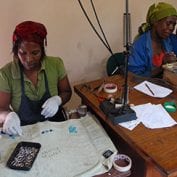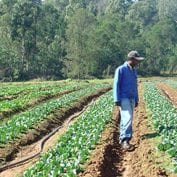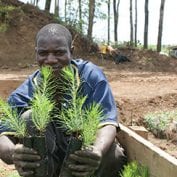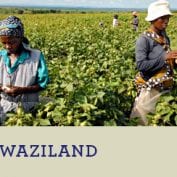Powering Up Renewable Energy in Swaziland
While innovating solutions to timber waste, TechnoServe and its partners unlock an opportunity for a renewable energy power plant with enormous potential for both environmental and social benefits.
While innovating solutions to timber waste, TechnoServe and its partners unlock an opportunity for a renewable energy power plant with enormous potential for both environmental and social benefits.

TechnoServe was part of a cooperative agreement with US Agency for International Development and FHI 360 for the Community Based Livelihood Development for Women and Children in Swaziland.

A three-year program funded by the EU addressed food security in a holistic manner by focusing on capacity building at the household level specifically targeted improved farm and business management by program participants.

TechnoServe partnered with Montigny Investments on an Energy and Environment Partnership grant from the Ministry of Foreign Affairs of Finland to investigate the best uses for biomass available in the 55,000 hectare Forest Stewardship Council Certified Usutu Forest.
Kyle Burr describes his experience working with TechnoServe in Swaziland to improve the livelihoods of vulnerable households.

Through a seven-year program funded by the U.S. Agency for International Development, TechnoServe has developed entrepreneurs by focusing on three objectives: support and strengthen today’s entrepreneurs and SMEs, plant the seeds for the entrepreneurs of tomorrow and build local sustainable capacity of financial institutions to support those entrepreneurs and SMEs.
CEO of Yalelo Ltd and former volunteer consultant Bryan McCoy shares with us about his time in Swaziland and Tanzania.
TechnoServe often works to measure its social impact. In our case, TechnoServe’s impact is something that will last the rest of our lives.
Baby corn, beans, zucchini and sugar snap peas sprout on a farm in the mountains of Swaziland. But there’s much more than produce growing here. Sdemane Farming’s contract to supply a major South African supermarket chain is sowing hope for a brighter future in this impoverished community. When Themba Dlamini…
For 17-year-old Percy Shongwe and his two younger siblings, honey is a ticket to an education. They supply Swaziland’s Eswatini Kitchen with honey from their more than 50 beehives. Beekeeping and harvesting require only about 60 hours of work per year but give Percy and his siblings the opportunity…